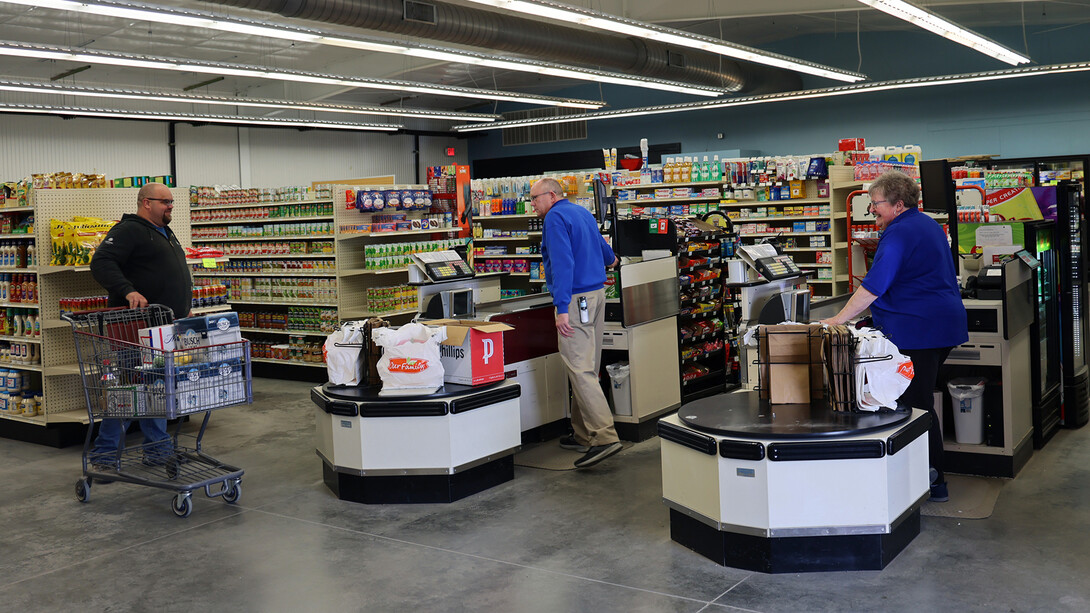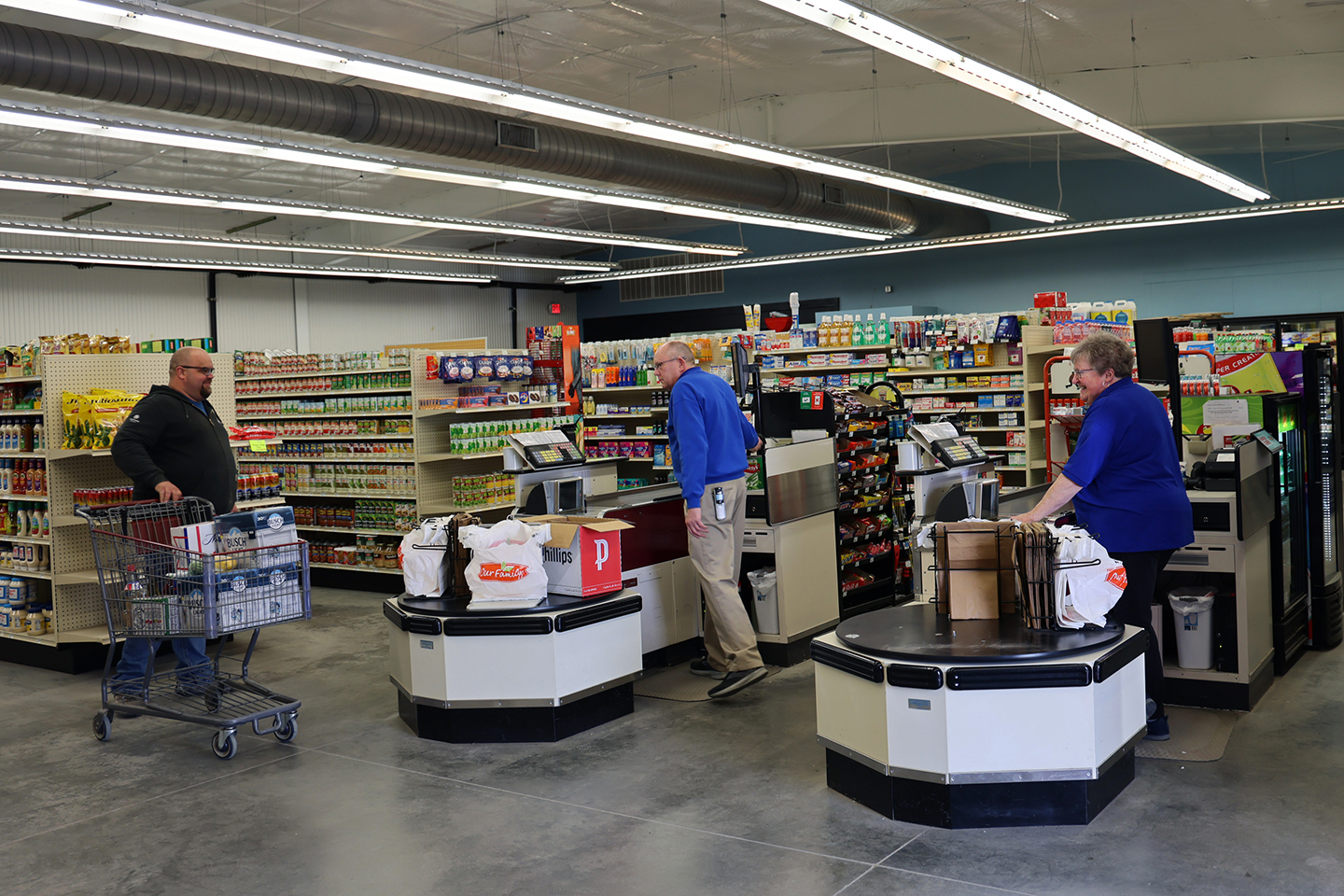
Often, communities turn to cooperatives — businesses run and owned by community members — to fill a void left by the closure of an essential business such as a grocery store or elderly care center.
In Utica, community members began the process of transitioning their grocery store to the new Centennial Market Cooperative before it closed for good and, in the process, set a new model of what a successful co-op transition can look like.
Previously operated by Pac N Save in Seward, the town’s only grocery store was coming to the end of its lease without a renewal option. But the store’s owners didn’t want to see Utica without groceries. Eleven years earlier, the town had lost its only store, and it hurt the local economy, said Jenna Greckel, a member of the co-op steering committee. They didn’t want to repeat that. In August 2022, they turned to Cindy Houlden and Charlotte Narjes of the Nebraska Cooperative Development Center at the University of Nebraska–Lincoln.
“We leaned on them a lot,” Greckel said. “They sat in quite a few meetings with us that we were having once a week, just to help kind of drive us. Sometimes it was very stressful, so they were awesome in keeping our spirits up and keeping us going with what our next steps should be.”
Those next steps included a case study to gauge interest and garner support from local residents, connecting with an attorney specializing in cooperative law, navigating the paperwork to incorporate the co-op, negotiating the purchase of inventory from Pac N Save, and raising money to purchase the store supplies and building.
“We couldn’t have done it without them,” Greckel said. “They helped us through the process and made sure we were on the right path to make it successful.”
The first success came on Nov. 1, when the committee purchased the inventory from Pac N Save, allowing them to open at 8 a.m., business as usual, with full shelves and no struggles with supply chain issues, said store manager Jay Bloom.
The second success came in February, when the steering committee reached a $200,000 goal to purchase the store’s supplies. For a town of 830 residents, that’s a significant fundraiser.
The third success is underway and will come with the raising of an additional $200,000 to purchase the building. Any funds received after that will be reinvested in the co-op.
One reason for such huge successes was that the limited liability company transitioned, rather than shutting its doors and opening later, said Houlden, cooperative development specialist at the Nebraska Cooperative Development Center.
“When a store closes, people start buying groceries somewhere else; then, when it reopens, you have to reteach those shopping patterns,” she said. “Utica hasn’t had to combat that.”
To help the newly formed co-op steering committee navigate the lengthy transition process, Houlden and Narjes drew from the Business Transition Models handbook, which breaks down various options for transition. Flow charts provide visual representations of the steps so individuals can track their progress along the transition path, as well as see expected time frames and pros and cons for each option. Having a visual and tangible guide helped speed up the transition for the Utica store. What can sometimes take years took only four months for the Centennial Market.
“It’s what happens when you have leaders in a community that want to do what’s best for their community and aren’t afraid to reach out and say, ‘Hey, can you help us make this decision?’” Houlden said.
Of course, none of those steps matter without an active steering committee willing to host the community conversations and active residents willing to invest in their community. Currently, the number of residents invested as co-op owners stands at 55.
“Transitioning a business is really scary in rural communities,” Houlden said. “Usually what happens is the doors close, and then it’s gone. So providing a way to transition a business successfully so no one loses their investment, there’s a vision for the future. When they’re having conversations about how to bring young kids into membership, they’re talking about the future of their community.”
The cooperative has become a symbol of the community’s unity, drawing its name from the Centennial School District, the first consolidated school district in Nebraska, which unites seven towns between Seward and York.
“When we have our town meetings, where we’re presenting all the information about Centennial Market Cooperative and our goals, and people becoming a member, we have some great feedback from the community,” Greckel said. “Every single meeting so far has had at least one, if not more, community member stand up and either thank the group of 10 that kept the store going, or put in a plea to the community to stay involved, that this is why we’re here. We chose to live here. We chose to send kids to school here. We can’t let it die. It’s on us. And with a cooperative, it is. It’s on us to keep it going.”
For more information on cooperative development and transition, click here.








